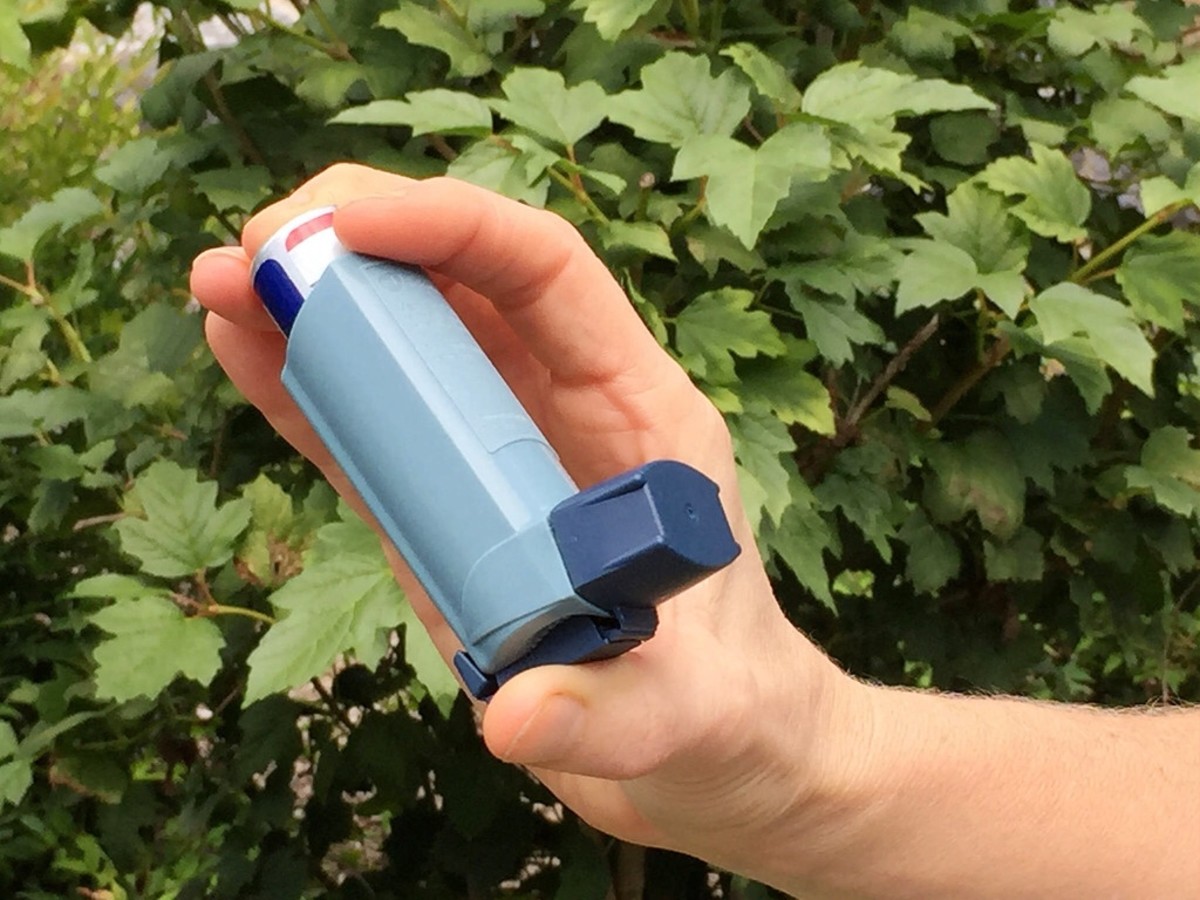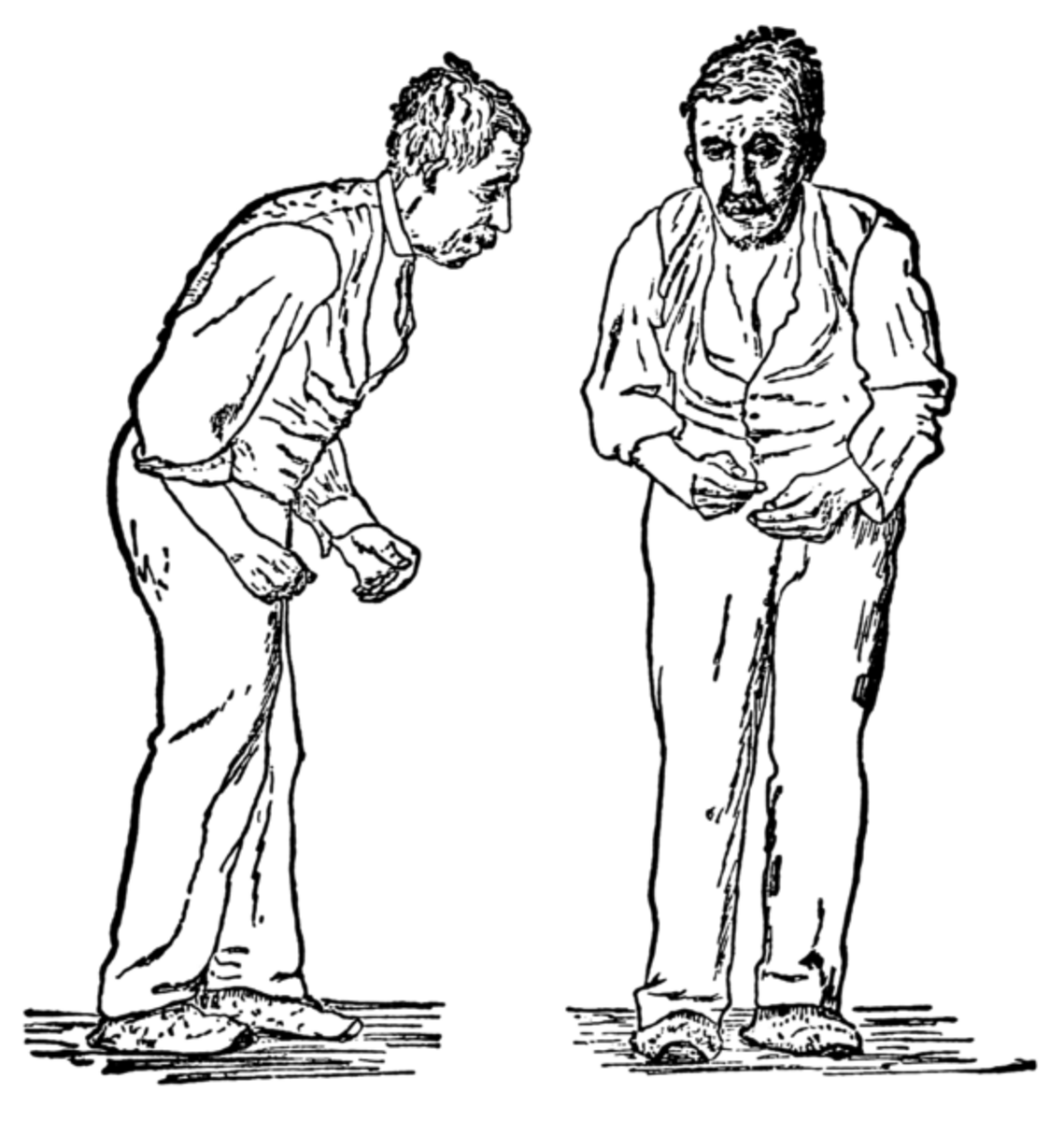Legalizing Medical Marijuana
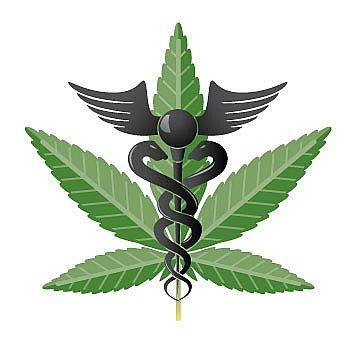
The Long Debate Over the Legalization of Marijuana
The argument over the legalization of marijuana is just as heated as it has been since the 1930s when it was first outlawed. Marijuana is a name given to any drug made from the hemp plant, otherwise known as Cannabis. Although the title of this blog seems to poke at the debate, to legalize or not legalize is a question that has been burning in the minds of many lawmakers and health officials and none know correct action to take. While some arguments have been factually supported with medical research, others have been purely opinion based; whether for personal reasons (i.e. sick family member, personal usage of the drug) or argumentative towards the impact legalization would have on the 'war against drugs'. This blog was designed to touch on many of these arguments, pro and con, but will also pose the real question: With updated research in hand should marijuana be legalized nationwide for medicinal purposes?
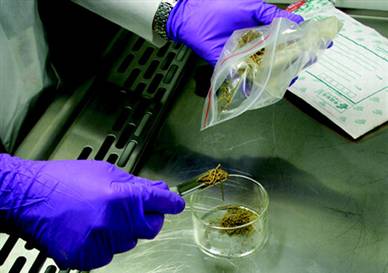
Fully Understand the Properties
To intelligently argue either way, I feel it is necessary one must have an overall understanding of what makes this drug just that ... a drug. Marijuana consists of more the 460 active natural chemicals and over 60 unique cannabinoids, which cannot be accurately duplicated by medical science. The major active ingredient in marijuana is d-9tetrahydrocannabinol (THC). THC is the primary component which is responsible for its therapeutic and psychoactive effects. The effects of marijuana when ingested can be felt almost immediately. THC moves quickly through to the bloodstream and then on to a number of body organs. Once in the bloodstream the many various cannabinoids spread to three main areas of the body, the central nervous system, peripheral tissue and immune cells. The brain (connected by the nervous system) is mainly affected by these cannabinoids which offers an explanation to marijuana's effects on pleasure, memory, concentration, sensory, thought and coordination. The results on the peripheral tissue and immune cells are the activation of these receptors which can lead to immunosuppressive, anti-inflammatory and anti-nocicpetive effects.
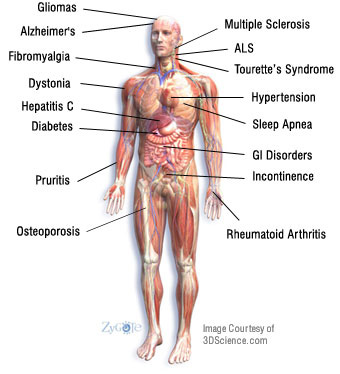
Some of the Diagnoses that Benefit
Many diagnoses can be affected beneficially with the use of marijuana. Currently due to the lack of legal availability, there are limited quality controlled studies and clinical trials on the benefits of medical marijuana. However, in the limited studies conducted, marijuana has shown to have a positive effect on everything from diagnoses of cancer, AIDS, glaucoma, multiple sclerosis, Parkinson's disease, generalized pain disorders, psychotic behaviors and even recurrent hiccups. Studies have shown that with cancer patients in chemotherapy, the THC compound in marijuana relieves symptoms such as nausea and vomiting. Also, it has shown to be used to increase the appetite and counteract weight loss in chemotherapy patients as well as those suffering from AIDS. Parkinson's disease and multiple sclerosis symptoms are relieved with its use on symptoms such as muscle relaxation, saliva reduction, sleep induction, and preventing seizures. Furthermore, it can reduce intraocular pressure with glaucoma, relieve symptoms of asthma and act as a mood stabilizer for those that suffer anxiety and depression.

Getting to the Real Legal Issues
Arguments have been made in the past that the legalization of marijuana could inevitably have a negative effect on those who use it in the case of its addictive nature. However, evidence leads to argue otherwise. In research provided by Herreid and DeRei in 2007, they quoted that even former U.S. Surgeon General, Dr. Jocelyn Elders commented on marijuana being less toxic than many of the drugs that physicians prescribe every day. Evidence also indicated in their research that people who have used such drugs as heroin and cocaine have most likely tried marijuana. Though most marijuana users never use any other illegal drugs, a majority of those people actually find marijuana is the only drug they will use rather than those that consider it a 'gateway drug'.
There has been some research done on the negative effects marijuana has and its impact on the human body and mind. According to the National Institute of Drug Abuse, someone who smokes marijuana on a daily basis may have many of the same respiratory problems that tobacco smokers have. These symptoms could be anything from a daily cough, phlegm, chronic bronchitis and chest colds along with even possibly causing long-term damage to lung tissue. Furthermore, studies provided significant fact that over time, marijuana use can permanently alter brain structure and function which causes memory loss, cognitive impairment, personality deterioration and reduced productivity.
Many critics have argued against the legalization and that it poses many concerns mainly towards the already booming illegal drug industry with the United States. A study preformed by the National Institute on Drug Abuse (NIDA) estimated that the economic cost of alcohol and drug abuse was roughly $246 billion in 1992 alone. This represented about $965 a year for every man, woman and child living in the United States at that time. About 40% of the estimated costs ($98 billion) were generated by drug abuse and dependence. This statistic is overwhelming for the main reason that this survey depicts the money spent solely on just the purchase of drugs not even taking into account the manufacturing and trafficking.
Also, one of the costly effects on taxpayers today already is the constant battle against the distribution of drugs. A concern that has been raised during discussions between politicians on the legalization regarding the possibility of sky rocketing costs if marijuana is legalized for medical uses due to the increased access people will have to the drug. NIDA conducted another survey that estimated the costs associated with the “war against drugs.” For drug abuse it was found that more than one-half of these costs were associated with drug related crimes. This included lost productivity of victims and incarcerated drug offenders (20.4%). Other costs related to this crime included drug traffic control, property damage and police, legal and corrections services (18.4%). The remaining costs were the results of premature deaths, productivity loss due to drug related illnesses and health care costs (29.6%).
Thankfully, there is increasing help to those who become addicted to the use of marijuana. The concerns over addictive behavior with the drug only add to the current fight against legalizing it for medical purposes. There are many updated treatment facilities though with innovative techniques to treat the ever growing problem of drug addictions. One study of adult marijuana abusers reviewed that benefits from a 14-session cognitive-behavioral group treatment and a 2-session individual treatment included motivation and advice on how to minimize the abuse. The methods of awareness had been productive toward patients finding their triggers for marijuana abuse. Both treatments helped patients to cope with their own avoidance strategies. In this study the participants were mainly men in their early thirties who had smoked marijuana daily for around 10 years. The results from these tests were that the abuse, dependence symptoms and psychosocial problems decreased for at least one year following this type of treatment. There does not seem to be any medications available that will help to alleviate withdrawal symptoms however, there are recent discoveries about THC receptors and how it may be possible to develop a medication to block these receptors which can be used in the prevention of relapse and help eliminate marijuana's appeal for those who do not need it.
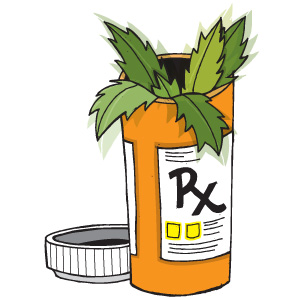
Am I Done Yet?
It is apparent that the validation for medical marijuana would have an optimistic outcome on America as a whole. This begins with the release of billions of dollars being depleted on the incarceration of peaceful and nonviolent drug offenders who technically have psychological or physical needs for the drug. The shift in this law could lift a colossal weight off of the justice organization and perhaps allocate the money being saved to be used on things such as better rehabilitation centers for abusers. With medical marijuana legalized and regulated like most prescription medications, it could diminish the introduction of drug abusers to more damaging narcotics, by taking the criminal dealer out of the story. What's more, as studies have shown, the drug is capable of bringing ease and relaxation to those who otherwise are in a large degree of pain. Though there are downsides to marijuana, with the proper training and education such as D.A.R.E, the downsides can be kept to a minimum. However, the mistreatment query is the preeminent concern in attempts to modifying marijuana laws, and it is the feeble connection upon which the entire marijuana prohibition lies. The most up-to-date studies reviewed for this particular blog seem to indicate that marijuana does not have a high possibility for misuse, in particularly compared to other narcotics such as cocaine, heroin and sedatives, so why not allow those who require this medical necessity access to its benefits?
I must point out that this is my opinion, in which I tried to portray the least amount of bias. In no way do I promote extracurricular drug use of any kind, and my feelings for this blog are sorely for the gain of medicinal uses, and those that may benefit from its properties.
Credits: Since this was a well researched blog, it is only appropriate that I give thanks to those who conducted the official studies: Zerrin Atakan, MD, Fiona Campbell, Clyde Herreid, Kristie DeRei and finally Roberto Trevino and Alan Richard!

